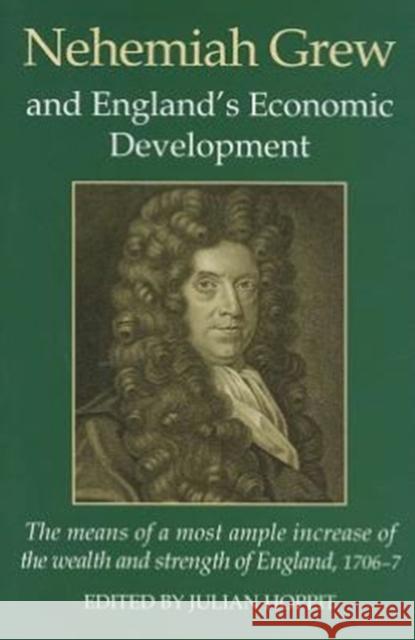Nehemiah Grew and England's Economic Development: The Means of the Most Ample Increase of the Wealth and Strength of England 1706-7 » książka
Nehemiah Grew and England's Economic Development: The Means of the Most Ample Increase of the Wealth and Strength of England 1706-7
ISBN-13: 9780197264959 / Angielski / Twarda / 2012 / 180 str.
Nehemiah Grew and England's Economic Development: The Means of the Most Ample Increase of the Wealth and Strength of England 1706-7
ISBN-13: 9780197264959 / Angielski / Twarda / 2012 / 180 str.
(netto: 193,20 VAT: 5%)
Najniższa cena z 30 dni: 197,19 zł
ok. 30 dni roboczych.
Darmowa dostawa!
This edition publishes for the first time a little-known work on improving England's economy, written around 1706 and presented to Queen Anne on the eve of the parliamentary Union of England and Scotland. As such it contributed to a growing body of writing about managing the economy in Britain. That the work has often been overlooked is partly because its author, Nehemiah Grew, is best known as a botanist and as a medic. But his distinctive voice and decided views warrant wider appreciation. In part his unusual contribution to economic literature arose from his involvement in the early Royal Society, founded in 1660, informing as it did his view of England's material potential and how it might best be exploited. But he was also suspicious of people's motivations and was certain that the state had to regulate lives to a significant degree if society was to be as productive as possible. If Grew's religious beliefs were important here, it is also clear that he had read amongst contemporary writings on economic matters. Certainly, his work ranges widely, from natural resources to human capital, agriculture to industry, internal trade to overseas commerce. Sir William Petty was an especially important influence upon him, though he eschewed Petty's methodological emphasis upon 'political arithmetic'. Indeed, Grew's assumptions and conclusions prove very questionable when their statistical implications are worked through. Nonetheless, the work reminds us of the importance of blind alleys and false dawns in the history of early 'political economy'.











